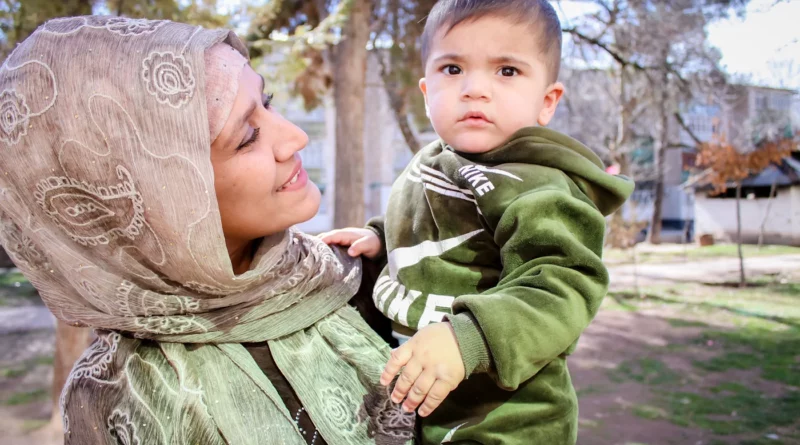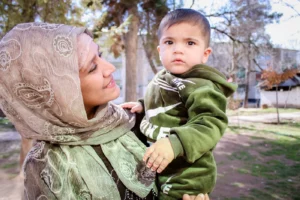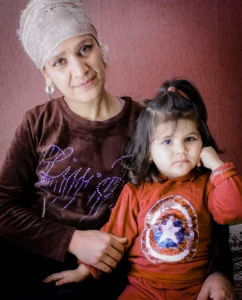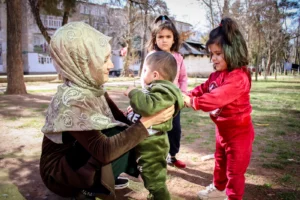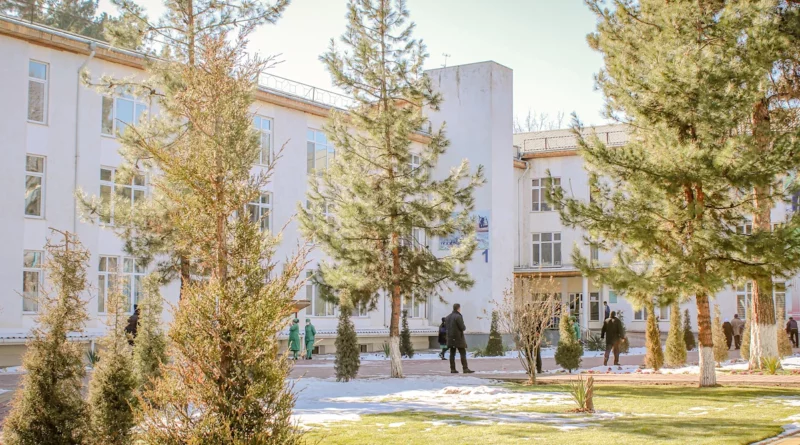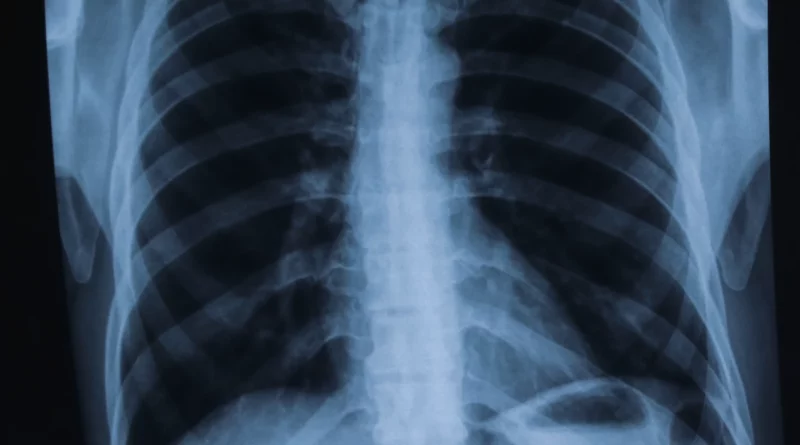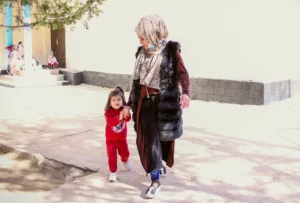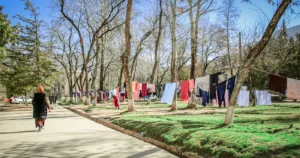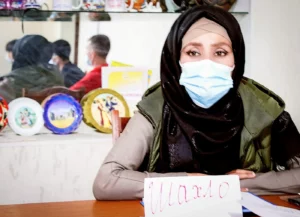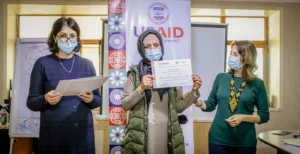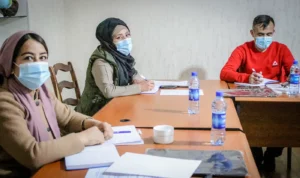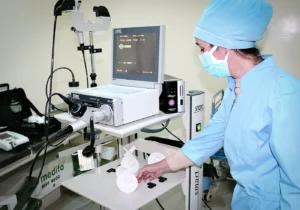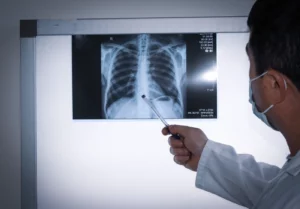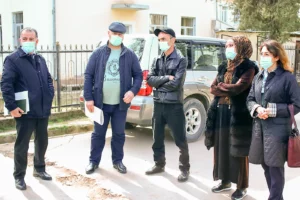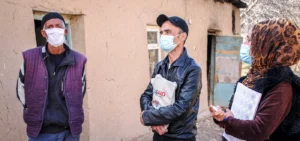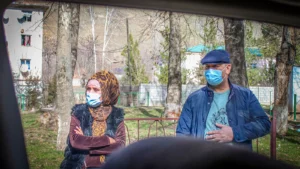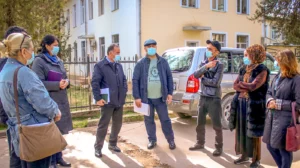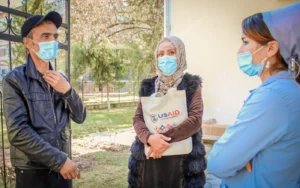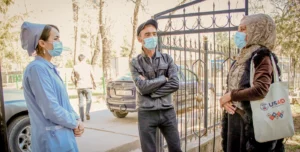Chain of good deeds
When Shahlo Rakhmanova was diagnosed with drug-resistant tuberculosis, her life took a dramatic turn. People often compare this disease to Alzheimer’s, but this is not entirely accurate. Nevertheless, Shahlo tried to find strength and inspire others to fight the disease. She supported the USAID Tuberculosis Eradication project in Central Asia, helping to improve the lives of those around her and offering hope to others.
Shahlo and her children.
Shahlo Rakhmonova is a 32-year-old mother from the Nurek district in Tajikistan. She has two children and her parents arranged her wedding, which is a traditional practice in many Central Asian countries.
In the fall of 2019, Shahlo started to worry about a persistent cough. She decided to seek medical help at a tuberculosis treatment center near her home. In November, after undergoing tests, she received a diagnosis that would change her life forever – she had drug-resistant tuberculosis.
Diagnosis and treatment at the central tuberculosis hospital.
After being sent to the central tuberculosis hospital, Shahlo gained knowledge about her illness, its symptoms, and treatment options. She learned that there were different types of tuberculosis, and that her chances of recovery were high if she followed the prescribed treatment plan strictly.
However, Shahlo’s life took a dramatic turn after her diagnosis. Due to pressure from her relatives, her husband left her and she was left alone with her two children. She had to stay in the hospital for treatment for three months, but because of the unstable family situation, she continued treatment at home. Here, she often faced ridicule and criticism from society, and unfortunately, the locals could not provide her with much support.
«My diagnosis became public knowledge, and others began to treat me with disdain. Despite taking all precautions – wearing a mask and eating separately – they still shouted at me.».
In Tajikistan, people with tuberculosis face discrimination and stigma due to limited access to information about the disease. Shahlo is one such person who has tried to explain to her family that she is now taking medication and is not a danger to others, but despite her efforts, she continues to face prejudice. She was even forced to move with her children to her parents’ home.
Lack of education and limited work experience made it difficult for Shahlo to find employment. She felt lost and did not know how to improve her situation and move forward. In July 2020, she attended an information event organized by the USAID Tuberculosis Eradication Project in Central Asia, where she met a consultant. This event provided Shahlo with the opportunity to share her experiences with other tuberculosis patients and learn from their stories. After attending the event, Shakhlo began interacting with others and inspiring them to follow the treatment plan. Her active participation in the project and her desire to help others led to her being selected as a consultant for the program. Currently, Shahlo works as a consultant, guiding other tuberculosis patients through the complex treatment process.
Shahlo is actively involved in training sessions aimed at reducing the stigma and discrimination faced by people with tuberculosis. Currently, she is an active consultant providing support to others with the disease.
“The support I received from the project gave me hope. I realized that I am not alone,” said Shahlo.
Soon, the results of Shahlo’s medical examination showed positive improvements. After eight months of treatment, she was able to significantly reduce her daily medication dosage.
“I am confident that I will successfully complete the treatment and have my name removed from the tuberculosis patient list.”
Shahlo regularly attends medical appointments to monitor the progress of her treatment and ensure its success.
Today, Shahlo actively supports other people suffering from tuberculosis during the treatment process. She also strives to educate the general public about the importance of early detection of tuberculosis symptoms and seeking medical assistance. Shahla takes great pride in knowing that her work helps others find hope and the chance to live a fulfilling life, providing for their families and caring for their children.
“I frequently use my own experience to encourage others with the hope of a bright future. USAID has been instrumental in my journey, and I strive to help others so that this chain of kindness continues,” said Shahlo.
Shahlo is actively involved in meetings with tuberculosis service providers, primary healthcare centers, and other patients with tuberculosis in the Nurek district.
Since June 2020, the USAID Tuberculosis Control Project in Central Asia has conducted more than 19,000 surveys among vulnerable and high-risk groups in Tajikistan, including relatives of patients, migrants, and people living with HIV. This project has provided technical support to the Center for Protection of the Population against Tuberculosis, helping to treat 577 people diagnosed with drug-resistant tuberculosis since January 2020.

